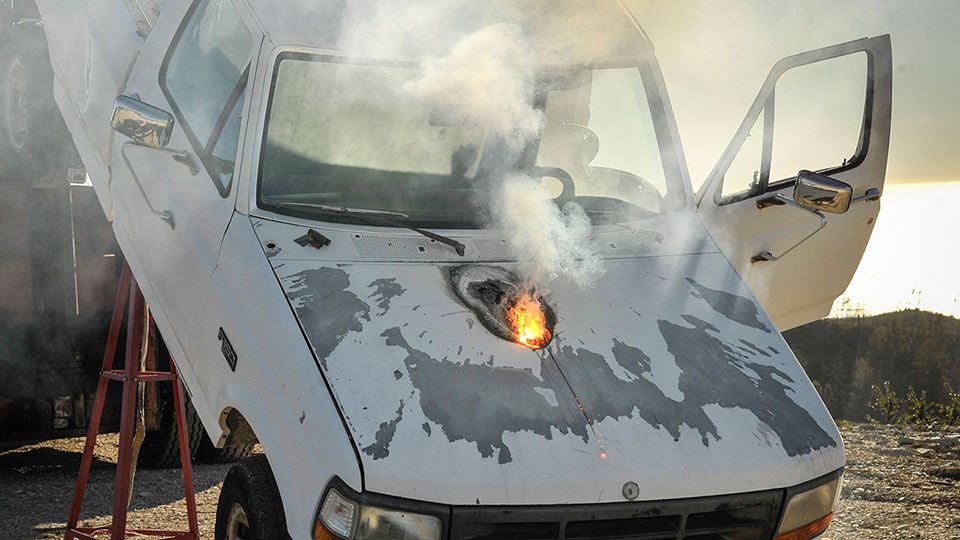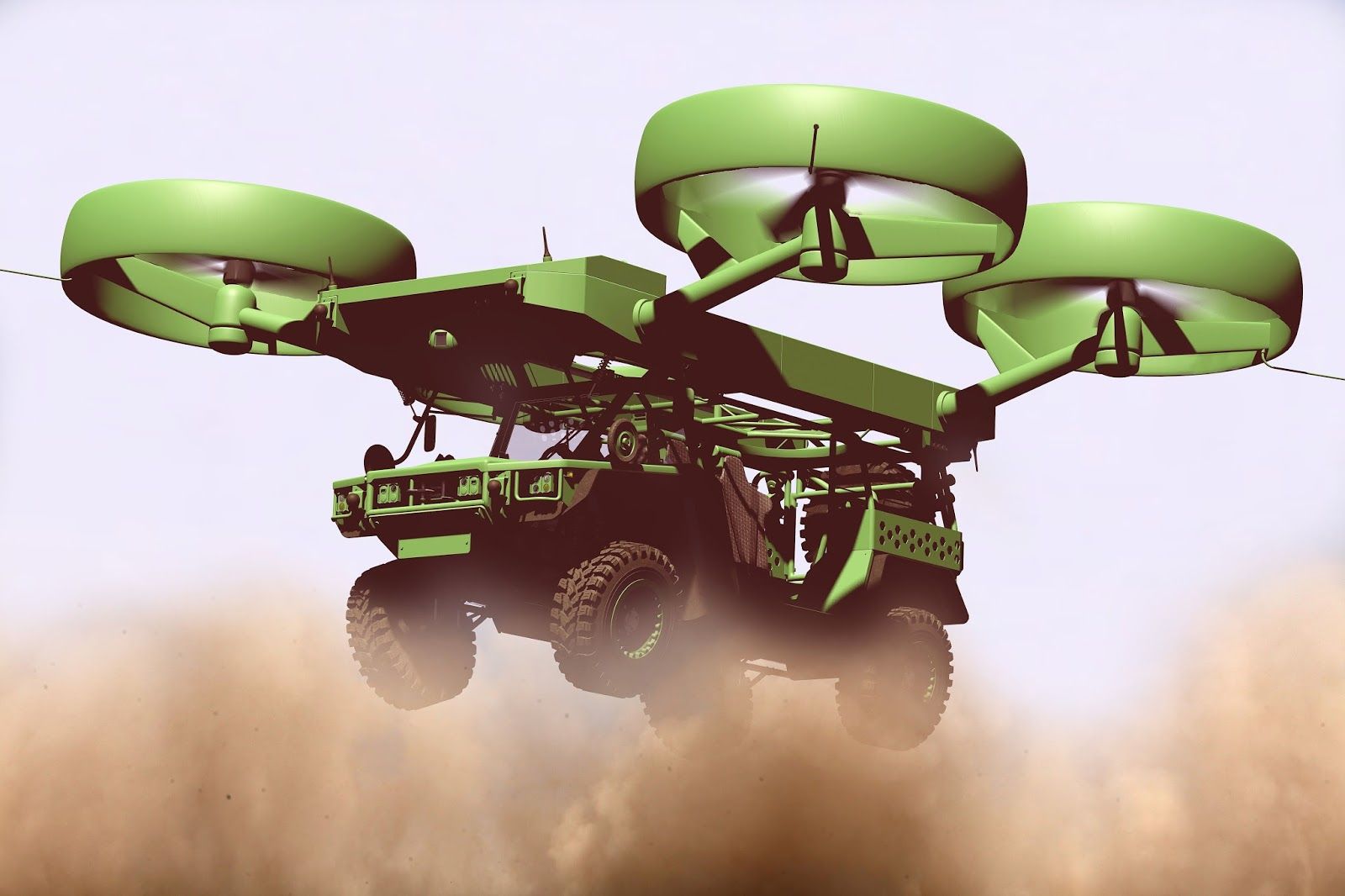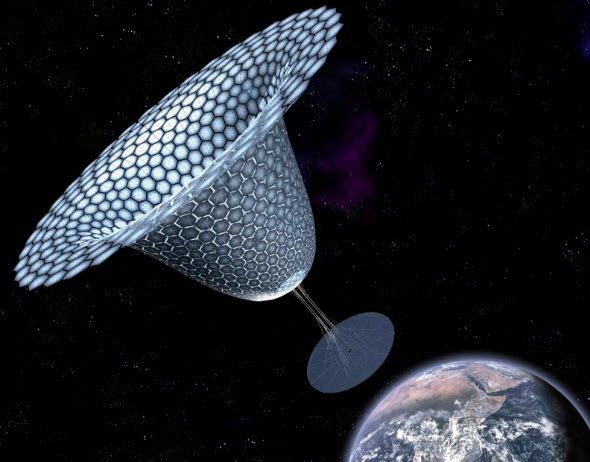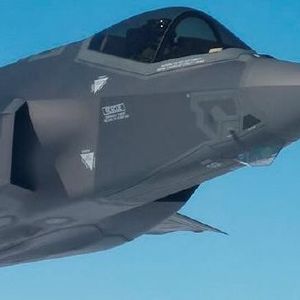Category: military – Page 271
Light wars: space-based lasers among Beijing’s hi-tech arms
Arsenal including electromagnetic railguns and microwave weapons aims to neutralize web of satellites that give US its main strategic edge.

Laser Weapon Systems
Science reality has caught up with science fiction. Lockheed Martin is showing that laser weapon systems can turn up the heat and stop land, air or sea targets in their path. And, they can be compact enough and power efficient enough for tactical platforms on the move, providing nearly unlimited “bullets” with speed-of-light response.
US Soldiers Training With Revolutionary Virtual Weapons — Dismounted Soldier Training System
First Army Division East Trainers of the 157th Infantry Brigade utilized some of the simulations capabilities at Camp Atterbury Joint Maneuver Training Center for weapons familiarization and squad level exercises.
Don’t forget to subscribe us on Facebook or Twitter.
https://www.facebook.com/DailyExplosiveVideos
https://twitter.com/ExplosiveVideos
You have a question or you would like to send us footage. Send us a message.

Ukrainian designers unveils concept of military transformer flying vehicle
Ukrainian designers unveiled the concept of military transformer flying vehicle for Special Forces.
All Military forces around the world are seeking for more efficient solutions to provide high level of mobility and stealth of their special forces.
The electric power assumed to be the most suitable thing to meet these requirements. Electric drive unit would warrant low center of gravity that means better stability, provide silent driving and invisibility in infrared specter.

Hacking the Human Brain—New Tech Could Make It a Reality
In Brief
- Your thoughts are your own, right? Perhaps not. New technology is bringing that day closer when the unscrupulous may actually be able to hack human thoughts.
- It raises a number of new ethical concerns for this brave new world we’re entering with each rotation of the Earth.
Everyone is familiar with the concept of hacking. It is why we all strive to protect our computers and smartphones from nefarious outside sources trying to break in to steal information, implant malware, etc. Hackers pose a threat to everyone from teenage smartphone users to the computer databases of government organizations. Hacking is a threat that we are all familiar with, and something that many know how to protect against. But, as the line between science and science fiction blurs, even hacking is getting a futuristic upgrade. Recently, at the Enigma Security Conference, University of Washington researcher and lecturer Tamara Bonaci revealed technology that could be used to essentially “hack” into people’s brains.
She created this technology around a game called Flappy Whale. While people played the game, the technology was able to covertly extract neural responses to subliminal imagery in the game like logos, restaurants, cars, etc. Now, hacking into people’s underlying feelings and thoughts about seeing a fast food restaurant doesn’t seem like it could cause much harm, but this technology has the potential to gather much more intimate information about a person like their religion, fears, prejudices, health, etc. This technology could evolve from an interesting way to understand human response to a military device. The possibilities range from an incredibly useful research tool to a potentially frightening interrogation device.

Dear President Trump: Here’s How to Make Space Great Again
(Credit: NASA Innovative Advanced Concepts)
By Brent Ziarnick, Peter Garretson, Everett Dolman, and Coyote Smith
President-elect Donald Trump often says that Americans no longer dream and must do so again. Nowhere can dreams be more inspiring and profitable than in space. But today, expanding space enterprise is not foremost on the minds of Americans or military strategists. As a recent CNN special showed, defense thinkers feel embattled in space, focused on protecting our existing investments rather than developing new ones that seize strategic advantage.

AI Scientists Gather to Plot Doomsday Scenarios (and Solutions)
Artificial intelligence boosters predict a brave new world of flying cars and cancer cures. Detractors worry about a future where humans are enslaved to an evil race of robot overlords. Veteran AI scientist Eric Horvitz and Doomsday Clock guru Lawrence Krauss, seeking a middle ground, gathered a group of experts in the Arizona desert to discuss the worst that could possibly happen — and how to stop it.
Their workshop took place last weekend at Arizona State University with funding from Tesla Inc. co-founder Elon Musk and Skype co-founder Jaan Tallinn. Officially dubbed “Envisioning and Addressing Adverse AI Outcomes,” it was a kind of AI doomsday games that organized some 40 scientists, cyber-security experts and policy wonks into groups of attackers — the red team — and defenders — blue team — playing out AI-gone-very-wrong scenarios, ranging from stock-market manipulation to global warfare.
Horvitz is optimistic — a good thing because machine intelligence is his life’s work — but some other, more dystopian-minded backers of the project seemed to find his outlook too positive when plans for this event started about two years ago, said Krauss, a theoretical physicist who directs ASU’s Origins Project, the program running the workshop. Yet Horvitz said that for these technologies to move forward successfully and to earn broad public confidence, all concerns must be fully aired and addressed.

China claims our to-be-delivered F35s are already obsolete
Should the US be concerned when China tells us that our F35s are already obsolete to their own next generation fighter jets now that China has their new radar capability that can detect stealth technology 100 km away?
CHINA claims it has a radical new ‘quantum’ radar capable of detecting stealth fighters at great distances. Does this mean our ultra-expensive new F-35 is obsolete, even before we get it?
The RAAF’s first F-35’s will be making their debut Australian appearance at the Avalon air show this week. It’s not a combat-capable aircraft, yet, though the first partially operational US squadron of the type was deployed to Japan earlier this year.
But Beijing state media has boasted its scientists have successfully tested a new type of radar capable of defeating stealth technology at ranges out to 100km.
